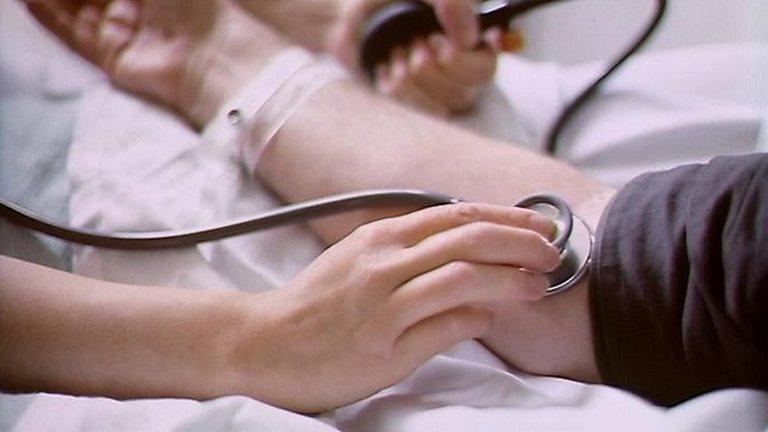First Minister's Questions: Ask an expert
- Published
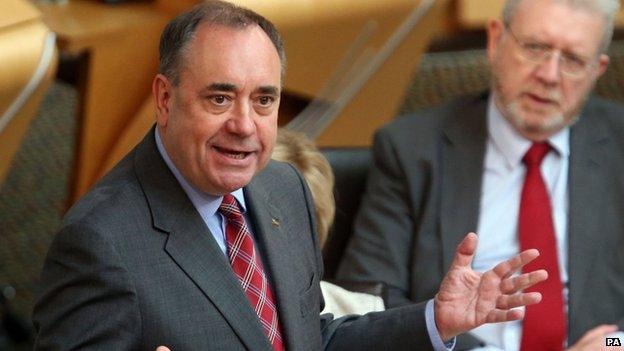
Alex Salmond makes his point at First Minister's Questions in the Holyrood chamber
Politicians are generally pretty keen on experts. Our elected tribunes are seldom happier than when they are able to cite in evidence the view of an expert in a contentious field. World experts are best but home-grown will do.
There is, of course, a caveat. Said experts must agree - or, at least, appear to agree - with the position which the politicians are keen to evangelise in the first place.
Today was definitely the Day of the Expert at Holyrood. Firstly, Dr Brian Keighley, the head of the British Medical Association in Scotland, was called in evidence by Labour's Johannn Lamont.

Holyrood Q&A
Look back at First Minister's Questions - the last before the holidays. Alex Salmond will resume his Q&A with opposition leaders in early August when the Scottish Parliament returns for a few weeks.

The good doctor has been standing by the bedside of the NHS in Scotland - and he reckons the patient is none too chipper. Passing staff overheard the consultation. Phrases like "crisis" and "car crash" drifted into the ether.
Ms Lamont sought a second opinion. More precisely, she challenged the First Minister to admit that Dr Keighley was right in every respect. There was real passion in her challenge - as she claimed that Scottish Ministers were only interested in independence.
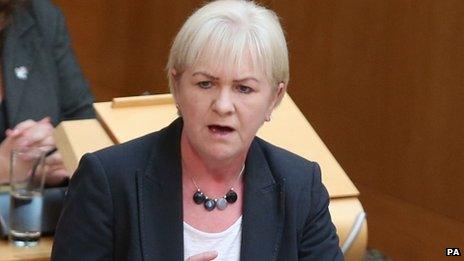
Health matters were concerning Labour leader Johann Lamont at FMQs
Mr Salmond, however, was ready for her. Dr Keighley, he noted, had also said on the wireless (BBC Radio Scotland, where else?) that the Scottish government could not be blamed for the struggling state of the NHS.
The problem, said Mr Salmond, rested with Westminster imposed austerity. He had other points to make: evidence of patient satisfaction; outcomes, while not perfect, that were improving; a better situation in Scotland than in England or Wales.
'Serious questions'
Ms Lamont said these were "inadequate answers to serious questions". Mr Salmond demurred.
More experts emerged from Ruth Davidson of the Tories. Many, many more. Indeed, her line of experts stretched out to the crack of doom, like the ghostly kings paraded before the hapless Macbeth by the weird sisters.
And what had they in common? (No, not the kings, nor the weird sisters….the experts.) They had all, she said, been chided by Mr Salmond for voicing doubts about independence.
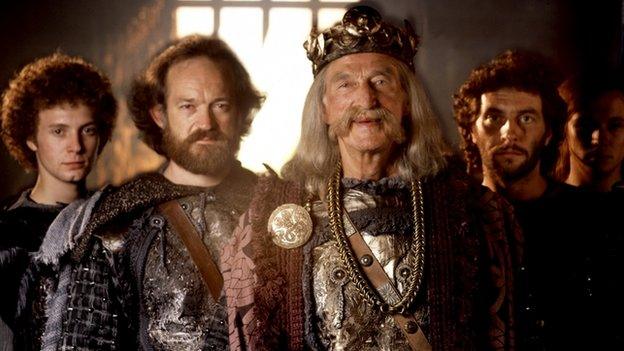
The named experts - like the ghostly kings parade before the hapless Macbeth....
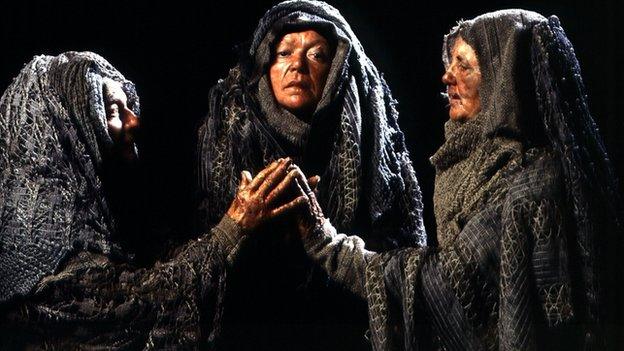
.... by the three Weird Sisters
Once again, the same question. Was he right and the experts wrong? Where Mr Salmond had deployed rhetoric against Ms Lamont, he resorted to satire in countering Ms Davidson.
Indeed, he cited another expert of his own. "Federal Fraser", he said, had got it right. Who he? Murdo Fraser, once a contender for Tory leadership. His latest intellectual outpouring has been to suggest federalism for the UK.
More to the point, said the FM, Mr Fraser had learned that the Tories would continue to struggle electorally in Scotland if they continued to depend on "doom laden nonsense".
Ms Davidson smiled, thinly. The Presiding Officer said that she would be obliged if the FM would desist from using nicknames about fellow MSPs.
Then to the final expert. Or, perhaps, given his ubiquity, perhaps we should say The Expert. Yes, Professor Patrick Dunleavy of the LSE is back. And, this time, it's statistical.
Who'll be judge?
Invited to comment once more, Mr Salmond noted (once more) that Prof Dunleavy's estimate of the start-up costs of independence had been "misbriefed" by the Treasury, being inflated 12 times.
The Prof had said the institutional start-up costs would be of the order of £200m. However, he anticipated more, particularly in providing IT for tax gathering.
Now, prompted by another expert, he has put figures on that. Transition costs over a decade might range from £600m to £1.5bn. (The other expert, Prof Iain McLean, had reckoned that costs could approximate £2bn)
Aha, said critics, this shows the Scottish government has been playing down the cost. No, says the SG. IT systems would have to be replaced anyway, over an extended period.
So, who is going to judge on this dispute? Anybody know an expert?
- Published26 June 2014
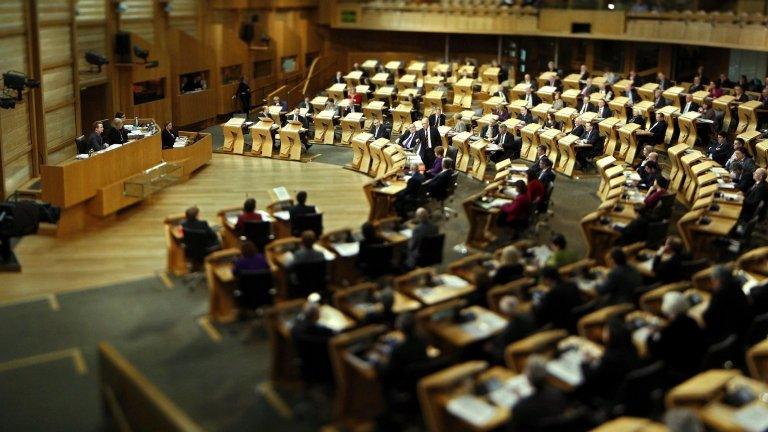
- Published26 June 2014
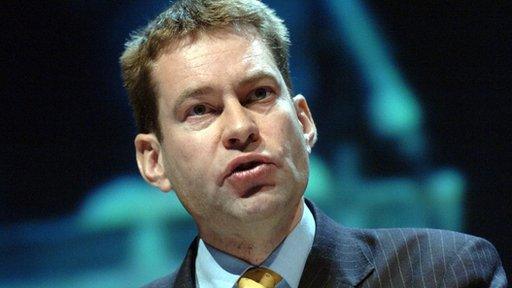
- Published24 June 2014
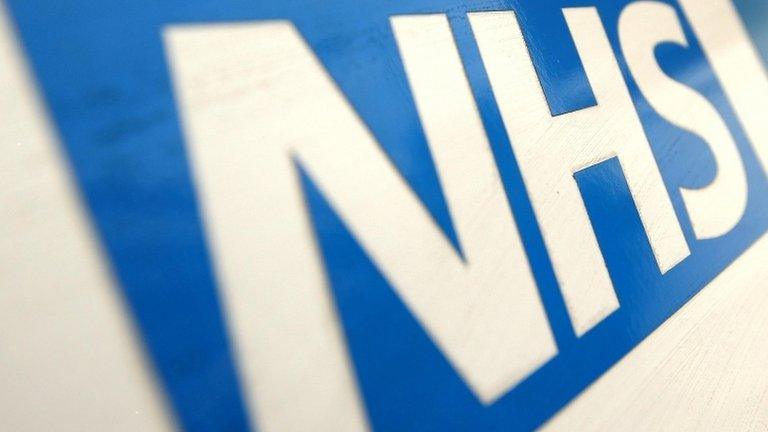
- Published26 June 2014
